Emotional Wellness in Motion: How Feelings Influence Your Gut
Your emotions are powerful forces that often manifest physically, especially in your digestive system. Therefore, understanding how your feelings affect your gut is crucial for effectively managing both your emotional and digestive health. Whether it’s stress, anxiety, or happiness, each emotion can trigger a cascade of physiological responses that impact how your gut functions.
Stress: The Emotional Disruptor of Digestive Health
Stress is an inevitable part of life, but its impact on digestion is profound. When you experience stress, your body undergoes several changes that can disrupt your digestive system.
- Hormonal Changes: When stressed, your body releases hormones like cortisol and adrenaline. These hormones prepare you for “fight or flight” by increasing heart rate and blood flow to muscles. However, they simultaneously disrupt digestion by diverting blood away from the digestive tract. This can lead to symptoms like diarrhea or constipation. Consequently, this demonstrates how emotions impact your gut function directly.
- Altered Gut Motility: Stress can change how quickly food moves through your digestive tract. For instance, it may speed up transit time, causing diarrhea, or slow it down, leading to constipation. This alteration highlights the influence of emotional states on gut motility.
- Increased Sensitivity: Stress heightens your gut’s sensitivity to pain, making discomfort from gas or bloating more pronounced. This clearly illustrates the tangible ways emotions can affect your gut. Moreover, conditions like irritable bowel syndrome (IBS) can be exacerbated by stress due to this increased sensitivity.
- Inflammation: Chronic stress can increase inflammation in the gut by altering the immune response. This means that the lining of your gut may become more permeable, leading to what’s often referred to as a “leaky gut.” Subsequently, this can contribute to digestive issues and affect overall gut health.
By recognizing the effects of stress, you appreciate the extent to which emotions impact your gut and feel motivated to manage stress effectively. Implementing stress-reduction techniques, therefore, becomes essential for maintaining digestive health.
Anxiety and Depression: Emotional States Affecting Your Gut
Emotions like anxiety and depression have tangible effects on your digestive system. These emotional states not only influence how you feel mentally but also have physiological repercussions.
- Anxiety: Specifically, it triggers stress responses that can cause nausea, stomach cramps, or increased gut motility. This happens because anxiety activates the sympathetic nervous system, leading to the release of stress hormones. Consequently, this highlights how emotional distress can impact gut function.
- Depression: Similarly, it’s often associated with changes in appetite—either a loss or increase—and slower digestion. This can result in discomfort, altered bowel habits, and nutrient absorption issues. Furthermore, depression may decrease the production of digestive enzymes, complicating digestion even more.
Understanding these patterns can help you address digestive issues by tackling emotional health. By seeking appropriate treatment for anxiety or depression, you emphasize the significant impact emotions have on your gut and take steps toward holistic well-being.
Positive Emotions: Healing Your Gut from Within
Not all emotional impacts on the gut are negative. In fact, positive emotions can have a healing effect on your digestive system.
- Happiness and Relaxation: These emotions activate the parasympathetic nervous system, promoting “rest and digest” functions. This positive state encourages proper digestion by increasing blood flow to the gut and stimulating digestive enzymes. Therefore, uplifting emotions can significantly benefit your gut health.
- Reduced Inflammation: Positive emotions lower inflammation levels in the gut by decreasing stress hormones and promoting the release of anti-inflammatory substances. As a result, this supports overall health and improves conditions like IBS and inflammatory bowel disease (IBD).
- Enhanced Microbiota: Reduced stress and increased happiness can promote a healthier gut microbiome. This occurs because stress hormones can alter the balance of gut bacteria, so minimizing stress helps maintain beneficial bacteria levels. Thus, this further illustrates the beneficial effects of emotions on your gut.
By cultivating positive emotions, you create a favorable environment for your digestive system to function optimally. Engaging in activities that bring joy, such as hobbies, socializing, or relaxation techniques, can have a profound impact on both your emotional and digestive health.
The Microbial Mood Makers: Gut Bacteria and Emotional Balance
Your gut microbiome is a bustling community of microorganisms that play a pivotal role in both digestive and emotional health. By understanding how emotions impact your gut microbiota, you can make choices that promote overall well-being.
The Power of Gut Microbiota on Emotional Health
The balance and composition of your gut bacteria influence mood, behavior, and mental health.
- Neurotransmitter Production: Gut bacteria help synthesize neurotransmitters essential for regulating mood, such as serotonin and GABA. Consequently, a healthy gut microbiome can positively affect your emotional state.
- Immune System Modulation: A balanced microbiome regulates inflammation linked to mental health conditions, further demonstrating the connection between emotions and gut health.
- Stress Response: Healthy gut bacteria can mitigate the body’s stress response, reducing the release of stress hormones and their impact on the body.
By maintaining a healthy microbiome, you can positively influence both your gut health and emotional well-being.
Dysbiosis: When Gut Balance Affects Emotional Wellness
An imbalance in your gut microbiome can have far-reaching effects.
- Emotional Impact: Dysbiosis is linked to increased anxiety and depression, highlighting how disruptions in gut bacteria can affect your emotions.
- Physical Symptoms: An imbalanced gut leads to digestive issues like bloating, gas, and irregular bowel movements, which in turn further affect quality of life.
Contributing Factors:
- Poor Diet: Diets high in processed foods and sugars feed harmful bacteria, leading to imbalance.
- Antibiotic Overuse: Antibiotics can disrupt the gut ecosystem by killing beneficial bacteria.
- Chronic Stress: Prolonged stress alters gut microbiota composition and function.
Recognizing these factors allows you to take proactive steps to restore balance, thereby improving both gut health and emotional well-being.
Breaking the Cycle: Managing Stress for Gut and Emotional Health
Understanding how emotions impact your gut empowers you to break negative cycles and, consequently, implement strategies for improvement.
Strategies for Stress Management to Enhance Emotional Wellness
Implementing stress-reduction techniques can have a profound effect on your digestive health.
- Mindfulness and Meditation: Reduces cortisol levels, showing how managing stress can positively influence gut function.
- Example: Setting aside just 10 minutes a day for mindfulness meditation can lower stress levels and promote better digestion.
- Deep-Breathing Techniques: Activates relaxation responses, directly affecting your gut health.
- Tip: Try the 4-7-8 breathing technique: inhale for 4 seconds, hold for 7 seconds, and exhale for 8.
- Regular Physical Activity: Exercise reduces stress hormones, demonstrating another way emotions can favorably impact your gut.
- Suggestion: Incorporate activities you enjoy, such as walking, dancing, or cycling, to make exercise a consistent part of your routine.
Integrating these practices helps mitigate the adverse effects of stress on your gut, promoting better overall health.
Tips for Managing Stress and Improving Gut Health
- Build a Routine: Consistency in sleep, meals, and exercise regulate bodily responses, preventing disturbances in your digestive system.
- Seek Professional Help: Therapists can provide strategies for handling emotional triggers and altering how emotions impact gut health.
- Practice Self-Care: Engaging in relaxing activities can positively affect your emotional state and, in turn, your digestive health.
Ultimately, by prioritizing mental health, you can significantly influence your gut health.
Holistic Interventions: Healing Both Mind and Digestive System
These sensations are more than mere coincidences; they illustrate how emotions impact your gut. Addressing gut health requires a comprehensive approach that considers both physical and emotional factors. The intricate relationship between your emotional state and digestive system is both fascinating and vital to understand for overall well-being.

Psychological Therapies for Emotional and Gut Wellness
Recognizing how emotions impact your gut is crucial for achieving both emotional and digestive wellness. The intimate connection between your emotional state and digestive system means that implementing stress-reduction techniques can profoundly affect your digestive health. Psychological therapies have been shown to alleviate gastrointestinal symptoms by addressing the underlying emotional triggers, further demonstrating how emotions impact your gut. Let’s explore some effective therapies that highlight this important connection.
- Cognitive Behavioral Therapy (CBT): CBT focuses on changing negative thought patterns that adversely affect gut health. By identifying and modifying unhelpful beliefs and behaviors that contribute to stress and anxiety, CBT directly addresses how emotions impact your gut. This therapy empowers individuals to develop coping strategies to manage stress, thereby improving digestive function and showing the direct ways emotions impact your gut.
Success Rate: Approximately 70% of IBS patients report significant improvement with CBT. This high success rate underscores the therapy’s effectiveness in managing digestive issues linked to emotional stress, further illustrating how emotions impact your gut health and overall well-being.
- Gut-Directed Hypnotherapy: This therapy employs relaxation techniques and guided imagery to alter brain-gut communication. It offers therapeutic ways to understand and manage how emotions impact your gut. Patients are guided into a state of deep relaxation where positive suggestions can influence gut function, highlighting the powerful connection between emotions and digestive health and how emotions impact your gut directly.
Success Rate: Studies show a 75% improvement in severe IBS cases after gut-directed hypnotherapy. This promising outcome emphasizes the importance of addressing the ways emotions impact your gut, especially for those unresponsive to conventional treatments.
- Biofeedback Therapy: Biofeedback enhances control over bodily functions by teaching you to recognize and regulate physiological signals. This method demonstrates how managing stress and emotions impacts your digestive system. By receiving real-time feedback on processes like heart rate and muscle tension, you learn to relax these responses, showing practical applications of how emotions impact your gut.
Success Rate: An 85% success rate in treating chronic constipation has been reported with biofeedback therapy. This high effectiveness rate further confirms how emotions impact your gut and the benefits of addressing emotional factors in digestive disorders.
These therapies highlight the profound impact of the mind on physical health, emphasizing the connection between emotions and gut function. By incorporating psychological therapies into your wellness plan, you address not just the symptoms but the root causes of digestive discomfort.
Dietary Adjustments for Improved Emotional Well-Being
What you eat affects both your gut and emotional health. Therefore, making mindful dietary choices is crucial for maintaining a healthy digestive system and a balanced mood. Let’s examine foods that can heal and those to avoid:
Foods That Heal
- Probiotic-Rich Foods: Yogurt, kefir, and sauerkraut introduce beneficial bacteria to your gut. These probiotics help restore the natural balance of gut microbiota, which can improve digestion and enhance immune function. Additionally, they may influence neurotransmitter production, positively affecting your emotional state.
- Prebiotic Foods: Garlic, onions, and bananas feed healthy gut bacteria. By consuming prebiotics, you provide nourishment for probiotics to thrive. This symbiotic relationship supports a robust gut microbiome, which is linked to reduced inflammation and better mental health.
- High-Fiber Options: Whole grains, legumes, and vegetables support digestion by promoting regular bowel movements and preventing constipation. Furthermore, dietary fiber serves as fuel for gut bacteria, enhancing microbiota diversity. A diverse microbiome is associated with resilience against stress and improved mood regulation.
- Omega-3 Fatty Acids: Found in fatty fish like salmon and mackerel, as well as flaxseeds and walnuts, omega-3 fatty acids reduce inflammation and support brain health. Including these in your diet can help alleviate symptoms of depression and anxiety, which in turn benefits gut health.
Foods to Avoid
- Processed Sugars: Sugary snacks and beverages disrupt gut bacteria balance and contribute to inflammation. Excessive sugar intake can promote the growth of harmful bacteria and yeast, leading to digestive discomfort and mood swings.
- Unhealthy Fats: Trans fats and high levels of saturated fats are linked to decreased microbial diversity and impaired gut function. By limiting these fats, you can prevent negative impacts on your gut microbiome and reduce the risk of inflammatory conditions.
- Excessive Alcohol: Alcohol can damage the gut lining and alter microbiota composition. Overconsumption may lead to increased intestinal permeability, commonly known as “leaky gut,” which allows toxins to enter the bloodstream and potentially affect brain function.
You can positively influence your gut health and emotional well-being by making mindful dietary choices. By focusing on nutrient-dense foods that support gut integrity and avoiding those that harm it, you create an internal environment conducive to both physical and mental health.
Mindful Eating for Gut Health and Emotional Balance
Mindful eating is a practice that involves paying full attention to the experience of eating and drinking, both inside and outside the body. By adopting this approach, you can enhance not only your digestion but also your relationship with food. Let’s delve deeper into how mindful eating supports gut health.
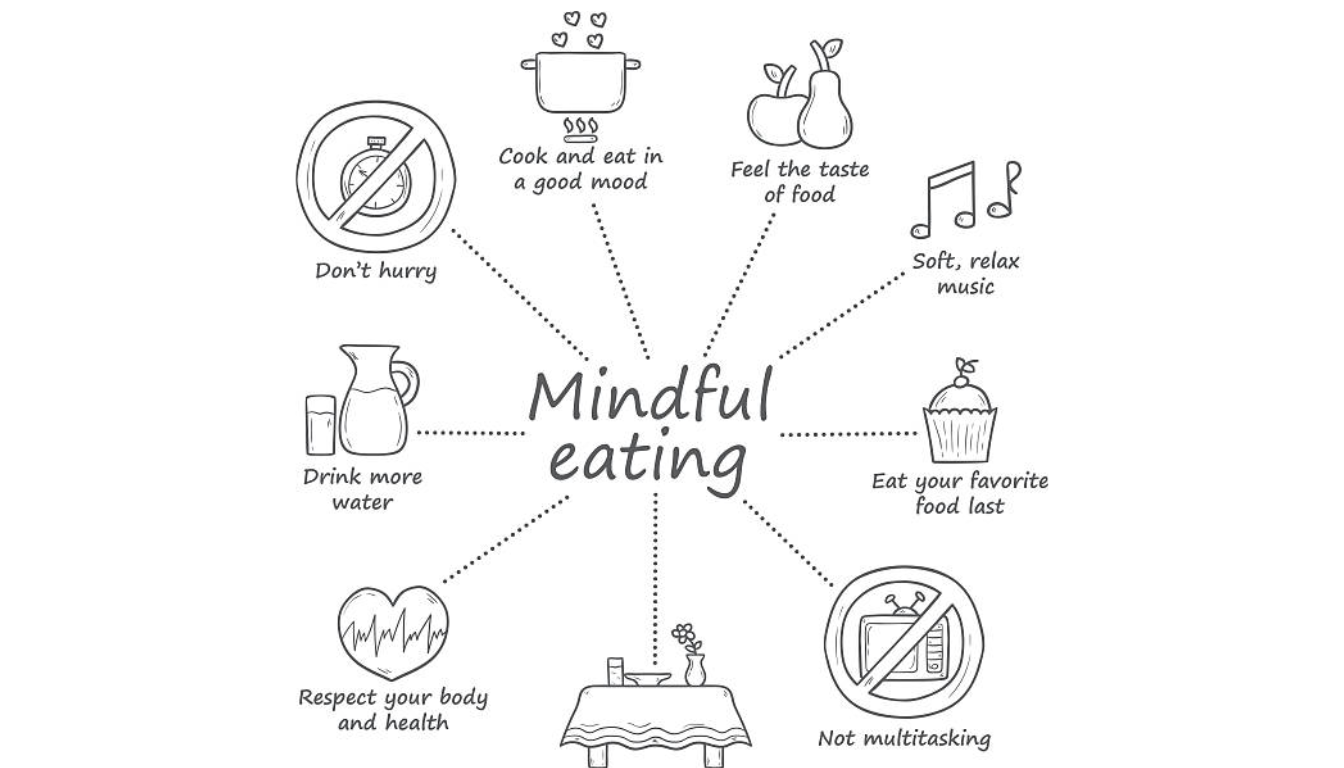
Heightened Awareness
Focusing on your eating experience significantly enhances digestion and enjoyment of food. When you are fully present, you become more attuned to your body’s hunger and satiety signals. This heightened awareness allows you to recognize when you’re starving and when you’re satisfied, preventing overeating.
- Practice: Before eating, take a moment to appreciate your food’s appearance, aroma, and texture. Engaging your senses in this way prepares your digestive system by stimulating saliva production and digestive enzymes. Moreover, it fosters a deeper appreciation for the nourishment you’re about to receive.
Recognizing Fullness
Eating slowly helps prevent overeating and discomfort. By taking your time, you allow your brain to receive signals of fullness from your stomach, which typically takes about 20 minutes.
- Tip: Put your fork down between bites to slow the pace of your meal. Additionally, chewing each bite thoroughly not only aids digestion but also enhances the flavors and textures of your food. As a result, you may find greater satisfaction with smaller portions.
Better Digestion
Mindful eating promotes thorough chewing, which aids in the mechanical breakdown of food. This process reduces the workload on your stomach and intestines, leading to more efficient digestion and nutrient absorption. Furthermore, chewing well mixes food with saliva, which contains digestive enzymes like amylase that begin breaking down carbohydrates. Consequently, this can reduce digestive strain and prevent issues like bloating and indigestion.
By transforming meals into mindful experiences, you support both gut health and emotional well-being. Not only does this practice improve digestion, but it also reduces stress by bringing a sense of calm and presence to your daily routine.
Meditation to Reduce Stress and Support Digestive Health
Meditation is a powerful tool for reducing stress and promoting relaxation. Integrating meditation into your daily routine can have profound effects on both your emotional state and digestive health. Here’s how:
Lowers Stress Hormones
Meditation reduces cortisol, the body’s primary stress hormone. Elevated cortisol levels can negatively impact digestion by altering gut motility and increasing inflammation. By practicing meditation, you lower cortisol levels, which alleviates these negative effects on digestion. In turn, this can help reduce symptoms of stress-related digestive disorders like IBS.
Boosts Vagal Tone
Meditation enhances brain-gut communication by boosting vagal tone—the activity of the vagus nerve. A higher vagal tone improves regulation and response to stress, leading to better control over gut functions such as enzyme secretion and gut motility. Therefore, regular meditation can strengthen this vital communication pathway between the brain and the digestive system.
Encourages Relaxation
Meditation activates the parasympathetic nervous system, promoting the “rest and digest” state. y encouraging relaxation, meditation helps shift the body away from the “fight or flight” response dominated by the sympathetic nervous system. As a result, digestion becomes more efficient, and nutrient absorption is optimized.
Integrating mindfulness into your routine can positively impact both your emotional state and digestive health. Even dedicating just a few minutes each day to meditation can yield significant benefits over time.
Scientific Support for Mindfulness in Emotional Wellness
Research has consistently shown that mindfulness practices like meditation and mindful eating have tangible benefits for gut health.
Mindfulness-Based Stress Reduction (MBSR)
MBSR is an eight-week program that combines mindfulness meditation and yoga. Studies have demonstrated that it can alleviate IBS symptoms and improve quality of life. Participants often report reduced abdominal pain, bloating, and bowel irregularity after completing the program. Additionally, MBSR has been linked to decreased anxiety and depression levels in individuals with chronic digestive issues, further illustrating the mind-gut connection.
Increased Anti-Inflammatory Markers
Meditation practices are linked to higher levels of anti-inflammatory markers, which benefit gut health. Research indicates that regular meditation can reduce pro-inflammatory cytokines—proteins involved in systemic inflammation. Consequently, this reduction in inflammation can alleviate symptoms of inflammatory bowel diseases and other gut-related conditions.
In summary, mindfulness practices offer a holistic approach to improving gut health by addressing the emotional factors that influence digestion. By embracing techniques like mindful eating and meditation, you can create a harmonious balance between your mind and body, leading to enhanced well-being and vitality.
The Role of Exercise in Gut and Emotional Well-Being
Physical activity offers a multitude of significant benefits, demonstrating how lifestyle choices profoundly influence both emotional well-being and digestive function. By engaging in regular exercise, you not only strengthen your body but also nurture your gut health and uplift your mood. Let’s explore how staying active can positively impact your gut ecosystem and emotional state.

Boosting Gut Health with Exercise for Emotional Benefits
Exercise plays a crucial role in enhancing gut health. Specifically, it promotes microbial diversity, strengthens the gut barrier, and supports metabolic health.
- Promotes Microbial Diversity: Regular physical activity increases beneficial gut bacteria, thereby supporting digestion and immune function. A diverse microbiome aids in breaking down food efficiently, absorbing nutrients, and protecting against harmful pathogens.
- Research Insight: Moreover, studies have found that athletes tend to have more diverse gut microbiomes compared to sedentary individuals. This suggests that exercise significantly contributes to a healthier gut environment. For example, a study published in the journal Gut observed that professional rugby players had a more comprehensive range of gut bacteria than non-athletes, highlighting the impact of physical activity on microbial diversity.
- Strengthens Gut Barrier: Physical activity reduces the risk of “leaky gut” syndrome by strengthening the gut barrier. This means that exercise helps maintain the integrity of the gut lining, preventing toxins and undigested food particles from entering the bloodstream. Consequently, this reduces inflammation and protects against various health issues.
- Supports Metabolic Health: Exercise helps regulate weight and reduce systemic inflammation. By engaging in regular physical activity, you can improve insulin sensitivity and lipid profiles, which are essential for metabolic health. Furthermore, maintaining a healthy weight eases the burden on your digestive system and decreases the risk of metabolic disorders that can affect gut health.
Staying active, therefore, nurtures your gut ecosystem and enhances emotional health. In addition to these gut-specific benefits, exercise has a profound impact on your overall physiological function.
Elevating Mood Through Physical Activity
Exercise is not only beneficial for your physical health but also plays a pivotal role in elevating your mood and reducing stress. Here’s how physical activity enhances emotional well-being:
- Endorphin Boost: Exercise releases endorphins, often referred to as “feel-good” chemicals. These neurotransmitters interact with brain receptors to reduce the perception of pain and trigger positive feelings. As a result, regular exercise can lead to improved mood and increased feelings of happiness.
- Reduces Stress: Physical activity lowers stress hormones such as cortisol and adrenaline. By decreasing these hormone levels, exercise mitigates their negative impacts on digestion and overall health. This reduction in stress hormones helps alleviate symptoms of stress-related digestive disorders like irritable bowel syndrome (IBS).
- Improves Sleep: Enhanced sleep quality benefits both emotional and gut health. Exercise promotes better sleep patterns by helping you fall asleep faster and deepening your sleep. Adequate rest is essential for emotional regulation and allows the digestive system to repair and regenerate.
Incorporating regular physical activity is, therefore, a powerful tool for overall well-being. By improving mood, reducing stress, and enhancing sleep, exercise contributes to a healthier mind-gut connection.
Types of Exercises for Digestive and Emotional Health
Different types of exercises offer various benefits for your gut and emotional health. Choosing activities you enjoy ensures consistency and long-term benefits.
- Aerobic Activities: Walking, jogging, or swimming improve cardiovascular health and gut motility. These exercises increase heart rate and breathing, which stimulates muscle contractions in the gastrointestinal tract. Consequently, this aids in moving food through the digestive system more efficiently, preventing constipation and promoting regularity.
- Mind-Body Practices: Yoga and tai chi combine movement with mindfulness, reducing stress and anxiety. These practices incorporate deep breathing and meditation, which activate the parasympathetic nervous system—the “rest and digest” state. As a result, they enhance vagal tone and improve brain-gut communication.
Example: A study in the Journal of Gastroenterology found that yoga significantly reduced symptoms in patients with IBS, illustrating the powerful connection between mind-body exercises and gut health.
- Strength Training: Building muscle mass supports metabolic health. Strength training exercises, such as weightlifting or resistance workouts, increase muscle mass, which boosts metabolism and improves insulin sensitivity. This support of metabolic functions indirectly benefits gut health by reducing inflammation and promoting efficient nutrient utilization.
Therefore, it’s essential to choose activities that align with your interests and fitness level. By doing so, you are more likely to maintain a regular exercise routine, which is key to reaping the long-term benefits for your gut and emotional health.
The Power of Sleep: Restoring Gut Function and Emotional Wellness
Quality sleep is vital, as it regulates emotional and digestive health processes. During sleep, your body undertakes essential repair and restoration activities that affect nearly every tissue and system—including the gut and brain. Therefore, prioritizing restful sleep is crucial for maintaining overall well-being. Let’s explore how aligning with your body’s natural rhythms and adopting healthy sleep habits can profoundly impact your gut health and emotional state.
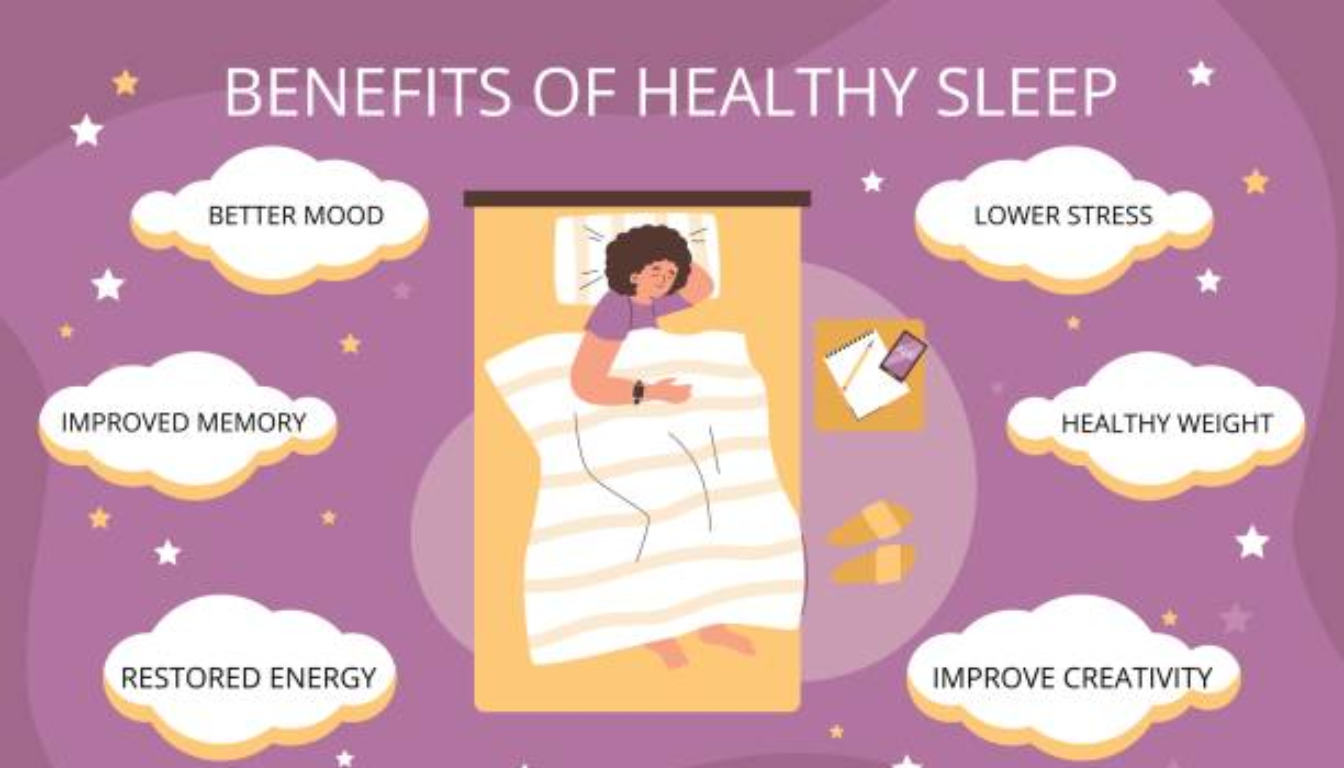
Aligning with Your Body’s Clock for Optimal Gut and Emotional Health
Our bodies operate on a 24-hour cycle known as the circadian rhythm, which governs various physiological processes such as sleep-wake cycles, hormone production, and digestion. By aligning your lifestyle with this natural clock, you can enhance both your gut function and emotional health.
- Circadian Rhythm: The circadian rhythm regulates sleep and digestion, showing how natural cycles affect gut function. For instance, digestive enzyme secretion and gut motility fluctuate throughout the day based on this internal clock. Disrupting your sleep schedule can interfere with these processes, leading to digestive discomfort and irregularity. Consequently, maintaining a consistent sleep pattern helps synchronize your body’s functions, promoting optimal digestion.
- Microbiome Cycles: Your gut bacteria also follow daily rhythms, impacting metabolism and digestion. Research has shown that the composition and activity of gut microbiota vary depending on the time of day. These microbiome cycles influence nutrient absorption, energy utilization, and even the production of neurotransmitters that affect mood. Thus, irregular sleep patterns can disrupt the microbial balance, potentially leading to increased inflammation and digestive discomfort.
In summary, aligning with your body’s natural clock supports the harmonious functioning of both your gut and emotional systems. Disruptions to these rhythms, such as those caused by shift work, jet lag, or inconsistent sleep schedules, can have significant negative effects on your health.
Tips for Improving Sleep to Enhance Emotional Well-Being
Improving sleep quality is a critical step toward better emotional and gut health. Here are some practical strategies to help you achieve more restful sleep and, consequently, support your digestive system:
- Establish a Routine: Consistent sleep schedules support bodily rhythms. By going to bed and waking up at the same times each day, even on weekends, you reinforce your circadian rhythm. This consistency makes it easier to fall asleep at night and wake up feeling refreshed, which benefits your overall energy levels and gut function.
- Create a Sleep-Friendly Environment: Optimize your space for restful sleep by controlling light, noise, and temperature. For example, keep your bedroom dark by using blackout curtains or an eye mask to block out light that can suppress melatonin production. Additionally, maintain a cool room temperature between 60-67°F (15-19°C), which is ideal for sleep. Reducing noise with earplugs or a white noise machine can also enhance sleep quality.
- Minimize Screen Time: Reducing blue light exposure before bed supports melatonin production. Electronic devices like smartphones, tablets, and computers emit blue light that can interfere with your body’s natural sleep signals. Therefore, it’s advisable to avoid screens at least one hour before bedtime. Alternatively, use blue light-blocking glasses or enable night mode settings on your devices to minimize exposure.
- Limit Caffeine and Alcohol: Moreover, be mindful of your intake of stimulants like caffeine and depressants like alcohol, especially in the hours leading up to bedtime. Caffeine can delay sleep onset, while alcohol may disrupt sleep architecture, leading to poorer sleep quality.
- Incorporate Relaxation Techniques: Practicing relaxation methods such as deep breathing exercises, progressive muscle relaxation, or gentle stretching before bed can help calm your mind and prepare your body for sleep. This not only aids in falling asleep faster but also enhances sleep depth and quality.
By implementing these tips, you can create a conducive environment for restorative sleep, which in turn positively impacts your gut health and emotional well-being. Better sleep helps regulate hormones involved in appetite and stress, reduces inflammation, and allows your digestive system to function more effectively.
Embrace the Connection: Steps Toward Harmonious Gut and Emotional Health
Recognizing how emotions impact your gut empowers you to take proactive steps for better health. By embracing this connection, you can implement strategies that enhance both your emotional well-being and digestive function. Here are some actionable steps to guide you toward harmonious health.
Listen to Your Body: Recognizing Emotional and Digestive Signals
Your body’s signals are crucial for managing both emotional and digestive health. Therefore, paying close attention to how your emotions affect your digestion can provide valuable insights.
- Mindful Awareness: Pay attention to how emotions affect digestion. For instance, notice if stress leads to stomach discomfort or if anxiety affects your appetite. Keeping a journal can reveal patterns and triggers, helping you identify specific emotional states that impact your gut health. By documenting your experiences, you gain a clearer understanding of the relationship between your emotions and digestion.
- Early Intervention: Address symptoms promptly, acknowledging how swiftly emotional states can influence your gut. Don’t ignore signs like persistent stomach aches, bloating, or changes in bowel habits. Instead, consult a healthcare professional to rule out any underlying conditions. Taking immediate action can prevent minor issues from developing into more significant health concerns.
By listening to your body, you become more attuned to its needs, enabling you to respond effectively to both emotional and physical cues. This heightened awareness is the first step toward achieving balance and harmony in your health.
Implement Healthy Practices for Emotional Wellness
By addressing root causes, you can improve your overall health and vitality. Incorporating healthy practices into your daily routine positively affects both your emotional well-being and gut function.
- Stress Management: Incorporate relaxation techniques to influence your gut function positively. Techniques such as deep breathing exercises, meditation, and progressive muscle relaxation can reduce stress levels. For example, dedicating just 10 minutes a day to mindfulness meditation can lower cortisol levels, thereby improving digestion.
- Healthy Diet: Choose nutrient-rich, gut-friendly foods to support digestive health. Emphasize whole grains, lean proteins, fruits, and vegetables in your meals. Additionally, it includes probiotics and prebiotics to foster a healthy gut microbiome. By nourishing your body with wholesome foods, you support both gut health and emotional balance.
- Regular Exercise: Physical activity enhances well-being, showing how lifestyle affects both emotions and gut health. Engaging in activities like walking, swimming, or yoga can boost mood-enhancing endorphins and stimulate digestion. Aim for at least 30 minutes of moderate exercise most days of the week to reap these benefits.
Implementing these healthy practices creates a supportive environment for your body to thrive. Consequently, you may notice improvements in energy levels, mood stability, and digestive comfort.
Seek Professional Guidance for Gut and Emotional Health
Professional support ensures personalized strategies for managing your health effectively. Sometimes, self-care practices may not be sufficient, and seeking expert advice becomes essential.
- Medical Consultation: Work with healthcare providers to address both gut and emotional health. A physician or gastroenterologist can assess your digestive symptoms, conduct necessary tests, and recommend appropriate treatments. Furthermore, they can coordinate care with mental health professionals to address the emotional aspects influencing your gut. This collaborative approach
- Therapeutic Support: Psychological interventions can help manage stress and its impact on digestion. Consider cognitive-behavioral therapy (CBT), gut-directed hypnotherapy, or mindfulness-based stress reduction (MBSR). These approaches equip you with coping strategies to handle emotional triggers effectively, thereby improving gut health.
By seeking professional guidance, you gain access to tailored interventions that address your unique needs. Between you and your healthcare team can lead to more effective management of symptoms and overall well-being.
Conclusion: The Journey to Emotional Wellness Begins Within
Your gut is more than a digestive organ; it actively participates in your emotional world. The sensations you feel—whether butterflies before a significant event or discomfort during stressful times—are powerful reminders of the ongoing dialogue between your mind and body.
By embracing the gut-emotion connection, you open doors to holistic wellness. Small, mindful actions like meditation, nourishing foods, and regular exercise can enhance both your gut health and emotional well-being. Remember, taking care of your gut is caring for your mind—and vice versa. The path to a healthier, happier you is paved with awareness and proactive self-care, paved with awareness, and proactive self-care.
FAQ






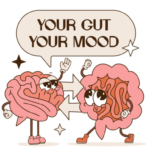



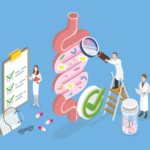







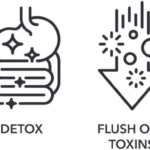
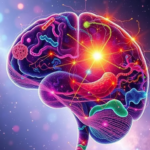


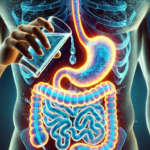
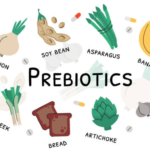
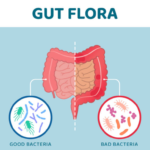







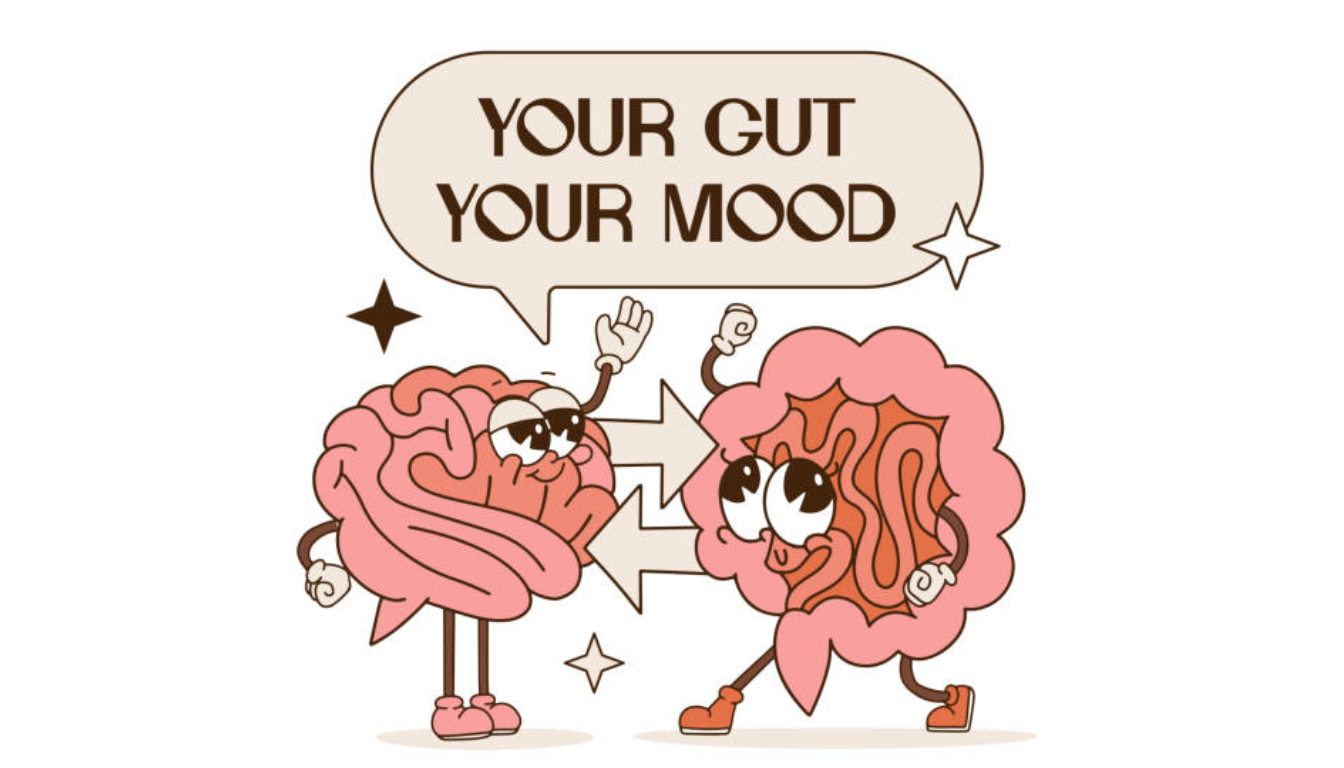













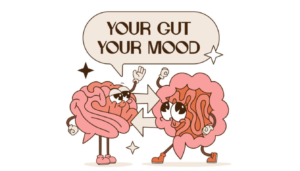



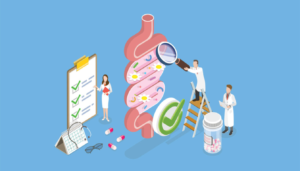
6 comments